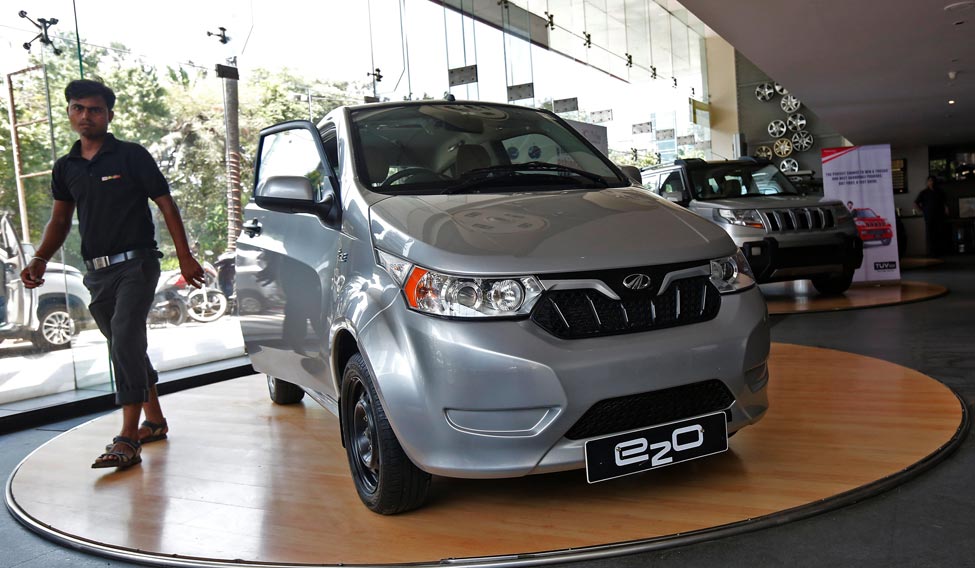Union Power Minister Piyush Goyal recently talked of the government's plan to introduce electric vehicles in a big way and shift to an all-electric vehicle fleet by 2030.
India's largest utility vehicle maker Mahindra & Mahindra, which is currently the only company that sells electric cars in India, has charted a roadmap to boost its electric battery manufacturing capacity as well as introduce technology solutions that will help in expanding driving range among other things.
So far, the adoption of electric vehicles in India is low. In 2015-16, only 22,000 electric vehicles were sold and of that only 2,000-odd were electric four-wheelers, while two-wheelers comprised the rest, according to Society of Manufacturers of Electric Vehicles.
M&M aims to work with public as well as private stakeholders to drive faster adoption of electric vehicles. This includes setting up of charging infrastructure and fleet operations.
Pawan Goenka, the managing director of M&M and chairman of Mahindra Electric feels that the time is ripe for electric vehicles to become mainstream and says the company has the right technology and products to take the lead.
“We will actively engage with the government, both at the Centre and the state, municipal bodies and other private players for setting up a robust EV ecosystem. We are also ramping up our investments towards developing the next generation of EV technologies and products that will cater to the smart cities of tomorrow,” he said.
The company's current electric vehicle lineup includes the e2o hatchback, eVerito sedan and the eSupro mini van. Its future plans include introducing an electric three-wheeler over the next few months and a 32-seater bus is also on cards in 18 months.
Presently, M&M has the capacity to manufacture around 400-500 batteries at its plant in Bengaluru. The company is adding additional capacity at Bengaluru as well as M&M's plant at Chakan near Pune, which will enable it to manufacture 5,000 units per month in about two years.
Fleet taxi operators will be key to electric vehicle push in the country. Fleet operator Lithium already uses M&M's electric vehicles in Bengaluru and Delhi. The company is also learnt to be in talks with other players.
M&M is not the only homegrown company gearing up for a electric vehicle push. Tata Motors is already testing electric buses, and various state transport undertakings have reportedly shown interest.
“We have provided a 9-meter full electric bus for test drives. This point of time the bus is in Delhi, we are about to complete a second bus and with the prototype we are effectively ready to also launch if we actually obtain an order, which we assume is going to happen at short notice,” said Guenter Butschek, managing director of Tata Motors.
The company had last year received orders to supply 25 diesel hybrid vehicles in Mumbai and deliveries are expected to commence soon.
The company also has developed a drive train for electric passenger cars through its Tata Motors European Technical Centre (TMETC). It has been tested in the Bolt hatchback and it is also working on expanding it to other passenger vehicles in its portfolio.
“We have electric drive train available. Its already applied for first test drives for the Bolt. We are in the process to apply, further optimise the electric drive-train on a different product in our latest product range, namely on the Tiago,” said Butschek.
The company recently created its sub-brand Tamo, under which it has already showcased the RaceMo sports car. It also has plans to launch an electric car under the Tamo brand.
The government has extended the demand incentives worth Rs 127.77 crore for the purchase of over 1.11 lakh electric and hybrid vehicles under the FAME-India scheme, the Lok Sabha was informed in March this year.
A report released by the Niti Aayog recently said India could save up to $60 billion in energy costs by 2030, if the country adopts more electric vehicles and shared mobility.






